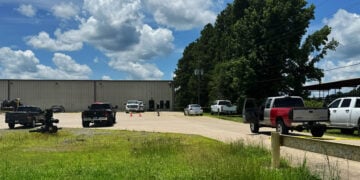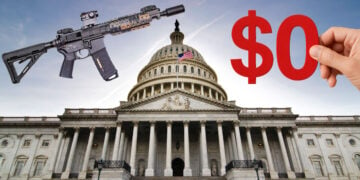
When I was with the Agency, I did a good amount of executive protection work. And although you may think executive protection work has nothing to do with you, you’re about to see how it applies to your own life.
The fact is, when it comes to this type of security work, the most important part is the Threat Analysis. For instance, let’s say you called me today and wanted to hire me to do some protection work. The first thing I would do is to ask why you want this protection? Have you had death threats, are you a high-profile celebrity, are you the CEO of a major company?
The thing is, the majority of people who want to hire protection don’t have any immediate threats, which is why the Threat Analysis focuses mostly on their lifestyle. In other words, let’s say you’re the CEO of a Fortune 500 company. I would do a lifestyle assessment to see what could get you in trouble in your life.
For example, maybe you never vary your routines, maybe you go to a gym in a dangerous part of town, maybe you’re a married man who is way too close to his personal assistant. I would also interview all of your family members so they could tell me about your behaviors, where you socialized, and the list of the places you frequented most.
That’s a very quick overview of the Threat Analysis, but I bring this up because this is something that you should be doing in your own life for you and your family. In other words, examine your lifestyle and see what could lead to some type of trouble… and then change it.
And it’s important to remember, the Threat Analysis is not just about physical threats. Did you know the number one threat for high net worth individuals is divorce? (Just ask Tiger Woods, who in my opinion, deserved to see his $100 million “disappear.”)
Medical emergencies happen to be the biggest threat of all when it comes to executive protection work. Do you have a first-aid kit in your house… in your car? (I have one in all my 72-hours kits and I have had to use them in the past.)
Now let’s talk about the second most important part of executive protection: The Advance. This simply means the planning and logistics of the security measures regarding where you or the principal is going.
To apply this to your own life, when you go on vacation do you know where the closest hospital is? When you stay at a hotel do you stay somewhere between the 3rd-5th floor and check out the hotel evacuation routes? When traveling, do you do detailed planning so you know if you’re going into a safe city and know the streets you should avoid traveling on? (A good Advance involves a lot of checklists.)
The third most important part of executive protection is the Security Detail itself. How many people will be on the Detail, how many hours will they be working each shift, have you hired the best possible specialists, etc.
I realize you likely don’t have a security detail following you around, and neither do I. But like me, you may have people in your life you care about (for me it’s my wife and daughter.)
Well, when we are out and about I am particular about keeping an eye on them and making sure I am between them and various threats that could occur. (Such as a man walking down the street toward us when we are out for a family walk.) You need to be trained and then use that training to keep yourself and family as safe as possible. In other words, you should be your best Security Detail.
Again, as I just mentioned, I realize you’re probably not a billionaire or someone who needs executive protection. However, each and every one of us are important and our lives our priceless. So each of us should focus on the 3 lessons above and then apply them to our own lives.
As things continue to head down hill in this country it’s this type of security knowledge that could make the difference for your well-being. (Just imagine if you did an Advance on a hospital while traveling and the fact you had the directions to the hospital and could get there in 5 minutes saved a family member’s life.)









